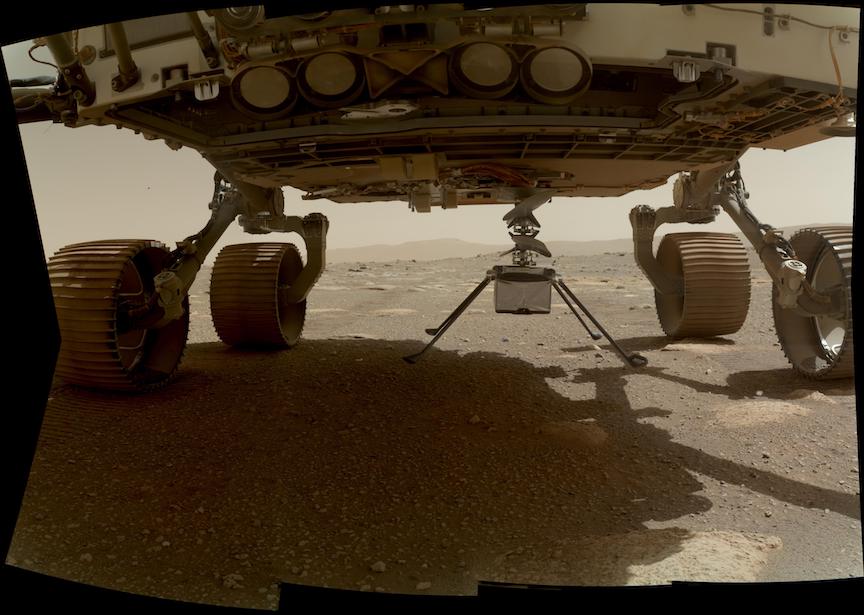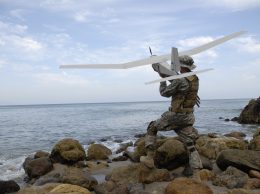AeroVironment’s drone still grounded on Mars

Ingenuity, the helicopter drone developed by Simi Valley-based AeroVironment, has had its first experimental flight on Mars delayed after an error sequence during testing, according to the National Aeronautics and Space Administration.
Ingenuity, which landed on Mars on the Perseverance rover in February, was scheduled for its first takeoff on April 11. NASA first rescheduled the flight to April 14 or later, and then, in an April 12 news release, it said the flight would be postponed indefinitely.
“The Ingenuity team has identified a software solution for the command sequence issue,” NASA said. “Over the weekend, the team considered and tested multiple potential solutions to this issue, concluding that minor modification and reinstallation of Ingenuity’s flight control software is the most robust path forward.
While the development of the new software change is straightforward, the process of validating it and completing its uplink to Ingenuity will take some time.”
When Ingenuity does take flight, it will be the first man-made aircraft to fly on another planet.
NASA said the reason for the delay was due to data that arrived from the Ingenuity helicopter on April 9. During a high-speed spin test of the rotors, the command sequence controlling the test ended early due to a “watchdog” timer expiration.
According to NASA, the watchdog timer oversees the command sequence and alerts the system to any potential issues.
The error sequence occurred while the helicopter was transitioning from “pre-flight” to “flight” mode. The helicopter remains “safe and healthy,” NASA said, and was able to communicate its full telemetry set to Earth.
Ingenuity landed with the Perseverance rover on Mars on Feb. 18. The helicopter drone was developed over nearly a decade by AeroVironment. It weighs around 4 pounds, can reach flights speeds of 22 miles per hour, and is designed to function in the thin atmosphere and 100-below-zero temperatures on Mars.












